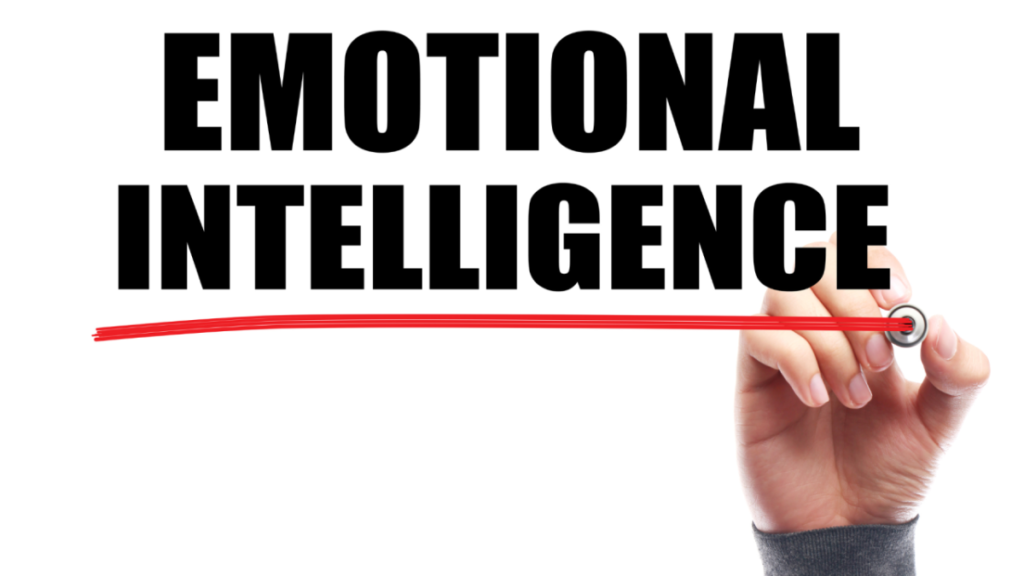Welcome to the world of emotional intelligence, where understanding and harnessing your emotions can unlock a new level of personal and professional success. In today’s fast-paced and interconnected society, being intelligent not only means having a high IQ but also possessing a high EQ3 – Emotional Quotient.
Emotional Intelligence (EI) has long been recognized as a crucial factor in our ability to navigate relationships, make sound decisions, manage stress, and achieve our goals. It encompasses the ability to recognize and understand emotions in ourselves and others, effectively express those emotions, regulate them appropriately, and use this knowledge to guide our thoughts and actions.
But did you know that EI has evolved over time? Enter EQ3 – the pinnacle of emotional intelligence! In this article, we will explore what exactly EQ3 is all about, its evolution over time, why it’s so important for personal growth and professional success, practical ways you can improve your own EQ3 skills. So buckle up as we delve into the fascinating world of Emotional Intelligence 3.0!
The Three Components of Emotional Intelligence: EQ1, EQ2, and EQ3
Emotional intelligence, or EQ, is a concept that has gained significant attention in recent years. It refers to the ability to recognize and understand emotions in ourselves and others, and to use this awareness to manage our behavior effectively. EQ can be broken down into three components: EQ1, EQ2, and the latest addition – EQ3.
EQ1 focuses on self-awareness – understanding one’s own emotions, motivations, strengths, and weaknesses. It involves being able to accurately identify how we feel in different situations and recognizing how those feelings impact our thoughts and actions.
EQ2 is all about social awareness – being attuned to the emotions of others. This component involves empathy – the ability to understand and share another person’s feelings – as well as having good interpersonal skills such as active listening and effective communication.
Now let’s delve into the newest component: EQ3. While EQ1 deals with self-awareness and EQ2 relates to social awareness, EQ3 centers around relationship management. It encompasses skills like conflict resolution, building rapport with others, inspiring teamwork, influencing without authority – essentially mastering the art of fostering positive interactions with those around us.
Over time, emotional intelligence has evolved from a focus solely on individual development (EQ1) towards a more holistic approach that recognizes the importance of social dynamics (EQ2) as well as effective relationship management (EQ3). This recognition reflects an understanding that success in both personal relationships and professional endeavors requires not only self-awareness but also strong interpersonal skills.
Developing your emotional intelligence is crucial for personal growth and success in various areas of life. Individuals who possess high levels of emotional intelligence tend to have better relationships both personally and professionally. They are adept at managing conflicts constructively while maintaining healthy connections with others.
Improving your EQ3 can be achieved through various practical strategies such as seeking feedback from trusted individuals about your communication style or actively practicing active listening techniques during conversations. Additionally,paying attention to your body language and expressions can help you understand how others perceive you
What is EQ3?
What is EQ3? It’s a question that may come to mind when you first hear the term. In simple terms, EQ3 refers to the third component of emotional intelligence (EQ). But what exactly does it entail?
EQ3 focuses on self-awareness and self-regulation, which are essential aspects of emotional intelligence. It involves understanding one’s own emotions, strengths, weaknesses, and triggers. This level of awareness allows individuals to effectively manage their emotions and reactions in various situations.
In addition to self-awareness and regulation, EQ3 also encompasses empathy—the ability to understand and relate to others’ emotions. This means being able to recognize and consider different perspectives and show compassion towards others.
By developing EQ3 skills, individuals can enhance their relationships both personally and professionally. They become more adept at navigating conflicts, communicating effectively with others, and building strong connections based on trust.
EQ3 plays a vital role in improving emotional intelligence as a whole. When we have a better understanding of ourselves and others’ emotions, we can navigate life’s challenges with greater ease while fostering healthier relationships along the way.
Remember: Emotional intelligence is not fixed—it can be developed through practice and by consciously working on enhancing our EQ skills!
How has EQ3 evolved over time?
Over the years, our understanding of emotional intelligence has grown and expanded. Initially, emotional intelligence was seen as a single construct known as EQ1. It focused on one’s ability to recognize and manage their own emotions effectively.
However, as research progressed, it became clear that there was more to emotional intelligence than just self-awareness and self-regulation. This led to the development of EQ2, which included the important aspect of social awareness – being able to understand and empathize with others’ emotions.
But it didn’t stop there. The evolution continued with the emergence of EQ3 – a comprehensive model that encompasses not only self-awareness, self-regulation, and social awareness but also relationship management skills.
EQ3 recognizes that effective relationships require more than just empathy; they necessitate communication skills, conflict resolution abilities, leadership qualities, and teamwork capabilities. It emphasizes the importance of building strong connections with others in both personal and professional settings.
The evolution of EQ3 reflects our increasing recognition of the significance of emotional intelligence in all aspects of life. By incorporating these various components into our understanding and practice of emotional intelligence, we can develop well-rounded individuals who excel in managing their own emotions while fostering positive relationships with those around them.
The Importance of Developing EQ3
Developing EQ3, the third component of emotional intelligence, is crucial for personal and professional growth. While EQ1 focuses on self-awareness and understanding our own emotions, and EQ2 emphasizes empathy and connecting with others’ emotions, EQ3 takes it a step further by incorporating emotional regulation and management skills.
Why is developing EQ3 so important? Well, let’s think about it. In today’s fast-paced world filled with constant stressors and challenges, being able to effectively regulate our emotions becomes essential. It enables us to navigate difficult situations with composure and make rational decisions rather than reacting impulsively.
Furthermore, cultivating EQ3 allows us to build stronger relationships both personally and professionally. When we can manage our emotions well, we create an environment where open communication thrives. We become better listeners who can respond empathetically to others’ feelings without getting overwhelmed by them ourselves.
Moreover, developing EQ3 helps us enhance our problem-solving abilities. By staying calm under pressure and thinking critically instead of succumbing to emotional reactions or biases, we can find creative solutions even in the most challenging circumstances.
Practical Ways to Improve Your EQ3
1. Increase self-awareness: Start by paying attention to your emotions and understanding the triggers that lead to certain reactions. Take note of how you feel in different situations and reflect on why you may be feeling that way.
2. Practice empathy: Put yourself in others’ shoes and try to understand their perspectives and emotions. This will help you develop compassion and build stronger relationships with those around you.
3. Cultivate emotional regulation: Learn to manage your emotions effectively by finding healthy coping mechanisms, such as deep breathing exercises or taking a break when feeling overwhelmed.
4. Enhance communication skills: Effective communication is key to developing strong emotional intelligence. Focus on active listening, expressing yourself clearly, and being mindful of nonverbal cues.
5. Seek feedback: Ask trusted individuals for honest feedback about how they perceive your emotional intelligence skills. Use this information constructively to identify areas for improvement.
6. Develop resilience: Strengthen your ability to bounce back from setbacks or adversity by reframing negative experiences, practicing gratitude, and building a support network.
7. Continuous learning: Keep seeking opportunities for personal growth through reading books, attending workshops or seminars focused on emotional intelligence development
Remember that improving EQ3 takes time and effort but can have significant impacts on both personal well-being and professional success.
Conclusion: The Impact of EQ3 on Personal and Professional Success
In today’s fast-paced and demanding world, emotional intelligence plays a crucial role in determining our personal and professional success. EQ3, the latest evolution of emotional intelligence, encompasses self-awareness, empathy, resilience, adaptability, and effective communication skills. By developing these components of EQ3, individuals can navigate through challenges with ease and build meaningful connections with others.







